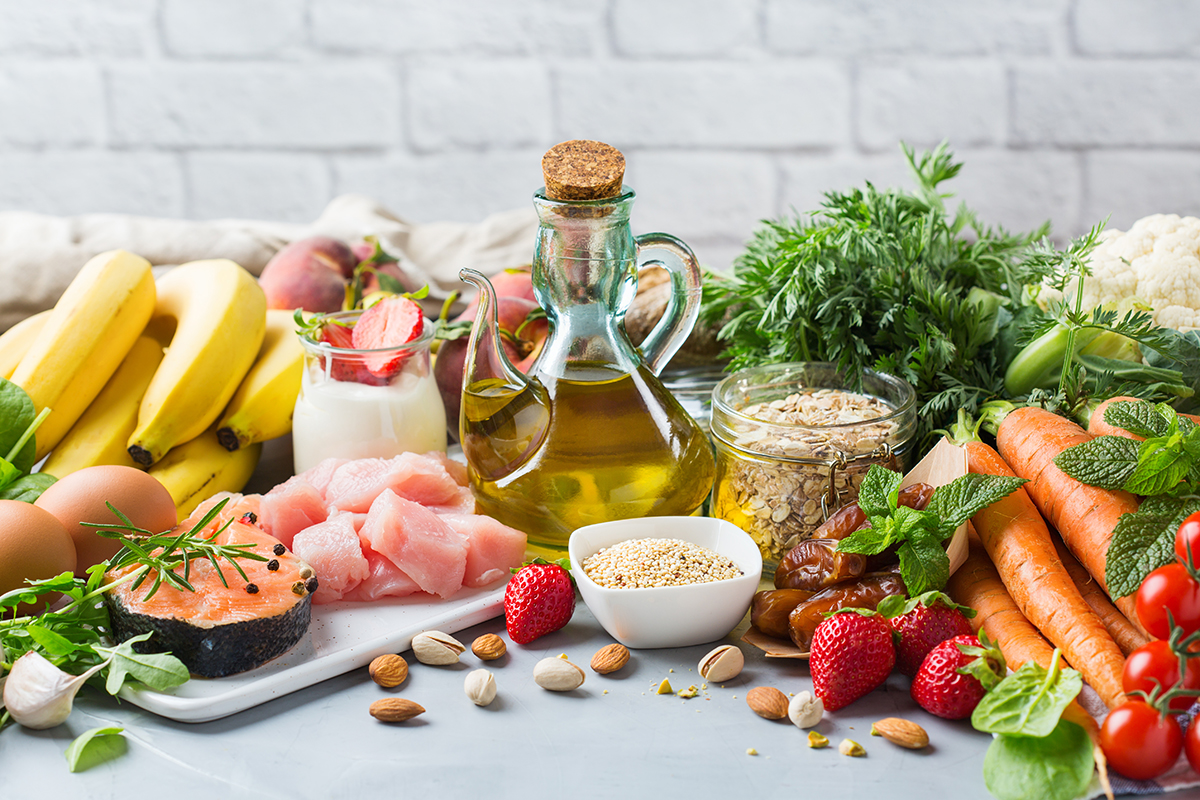
Reviewed and Updated: 08/15/2024
We’ve all heard of brain foods but we haven’t quite heard as much about “brain diets” like MIND. It’s even been suggested that this diet and overall lifestyle has the potential to stave off Alzheimer’s disease. So what is the MIND Diet and where do the brain-protective benefits come from?
What is the MIND Diet?
The name of this diet is short for “Mediterranean-DASH Intervention for Neurodegenerative Delay.” The MIND diet was introduced in 2015 when Dr. Martha Clare Morris and colleagues at Rush University Medical Center and the Harvard Chan School of Public Health published two papers introducing it.
It combines principles from what many scientists regard as two of the healthiest diets: The Mediterranean and the DASH (Dietary Approaches to Stop Hypertension). Experts wanted to create a diet specifically for brain health that might also have preventive benefits against neurodegenerative conditions such as dementia or Alzheimer’s.
How to Eat the MIND Diet
The basic approach is to consume more of 10 foods that appear on the two diets which are shown to have brain-protective benefits.
The MIND Diet doesn’t have strict meal plans or recipes. Instead, one will have to create their own recipes with the foods on the “do eat” list and minimize foods/ingredients from the “don’t eat” list.
Foods to Eat on the MIND Diet
3+ servings a day of whole grains
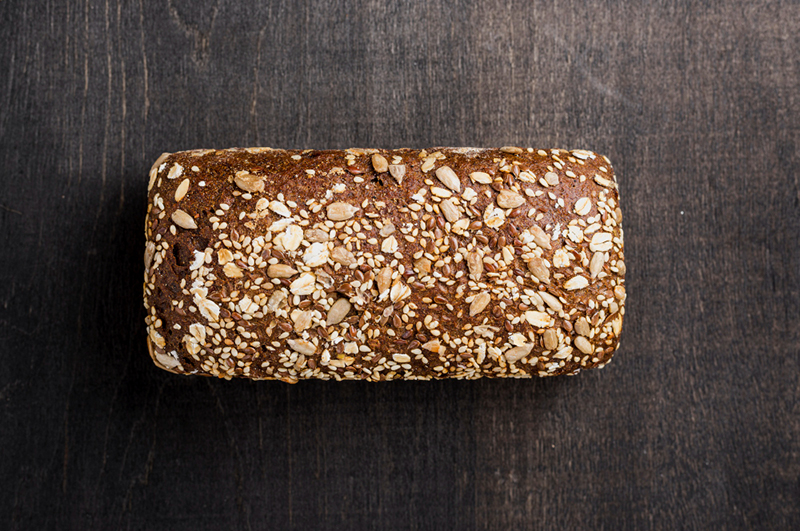
It’s thought that whole grains could give you a brain boost by way of their B-Vitamins which are tied to brain function and mood health. Additionally, compared to the way that refined carbohydrates will digest, whole grains generally won’t give you the sugar rush and following crash that can severely hinder your cognitive performance.
Whole grain foods for the MIND diet include
- Brown Rice
- Quinoa
- Oatmeal
- Whole Grain Bread
- Whole Grain Pasta
6+ servings a week of green leafy vegetables
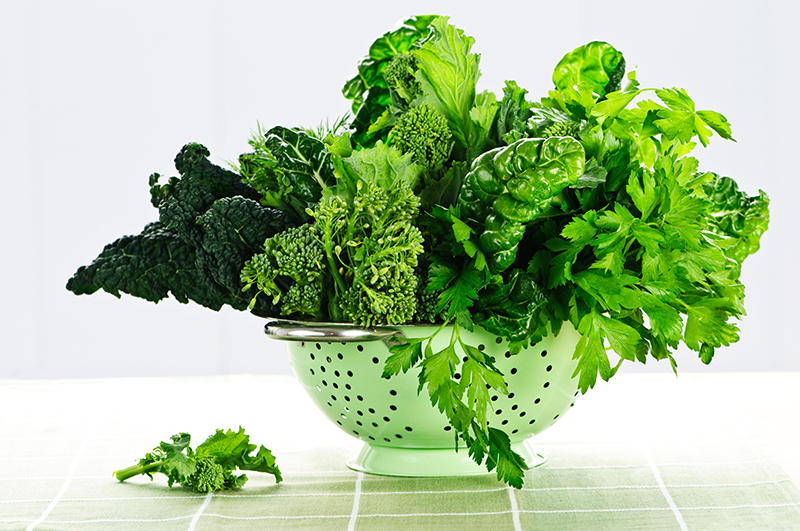
Dark leafy greens such as kale, spinach, and collard greens are nutrient powerhouses. When it comes to cognitive health, they provide some of the most important vitamins and antioxidants including Vitamin K, beta carotene, and folate.
Observational studies, like the 2022 study in Alzheimer's & Dementia Translational Research & Clinical Interventions, suggest that higher vitamin K levels in the blood are associated with better cognitive function and protects against cognitive decline.
1+ Servings a Day of Vegetables Other Than Leafy Greens
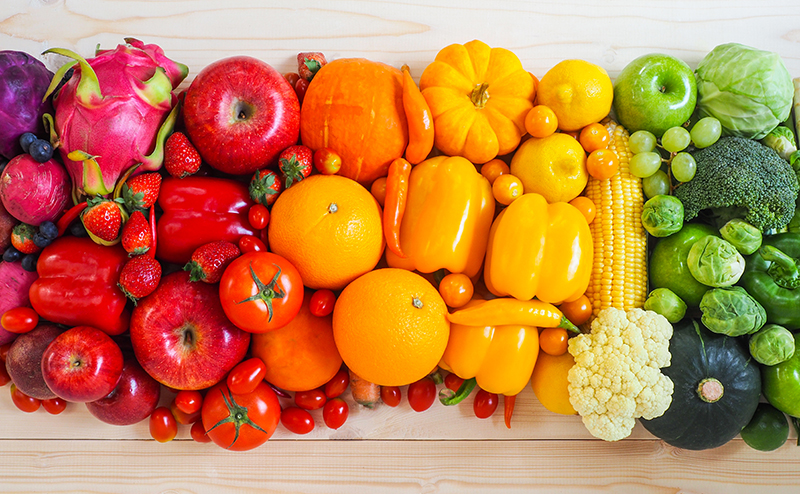
Orange, yellow, and red vegetables like bell peppers, carrots, and sweet potatoes are rich in carotenoids, which are converted to Vitamin A in your body. Vitamin A is essential for healthy brain development and function. A 2020 meta analysis of 435 studies shows promise for using carotenoids for brain health.
Beets, although a bit of an “acquired taste” contain nitrates, which can improve blood flow to the brain. The brain is an organ so better blood flow should lead to better cognitive performance and protect against neurodegenerative conditions. All these foods contain vitamins that reduce oxidative stress and inflammation thus protecting the brain.
5+ Servings a Week of Nuts

Nuts, especially walnuts, are well-established brain food. According to clinical trials, walnuts can help with memory, learning, coordination, and mood; So they have the potential to enhance basically every aspect of cognitive performance.
4+ Meals Per Week of Beans
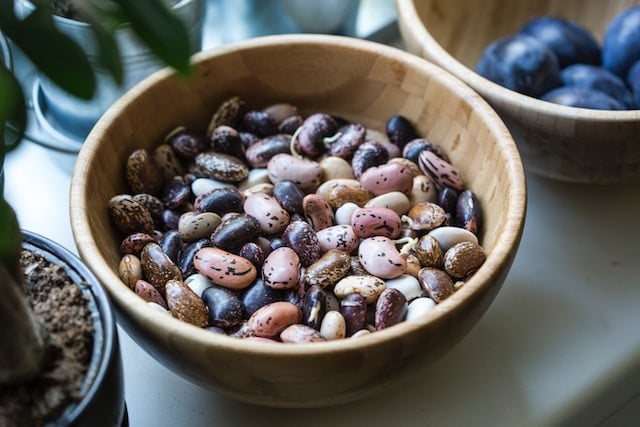
According to the Cleveland Clinic, beans can boost your brain power! They cite beans as a great, plant-based source of the B-Vitamins your brain relies on. They also provide some ALA Omega-3. Beans are important for the brain and nervous system because the vitamins they contain enhance the signaling of neurotransmitters between the nerves.
2+ Servings a Week of Berries

Berries, especially blueberries, are one of the richest sources of antioxidants and regarded by many as a “superfood.” Regular consumption of blueberries has been found to lower blood pressure and even enhance blood flow to key areas of the brain. In studies, this has been followed by corresponding improvements in memory vs a placebo.
Additionally, they seem to protect the brain against some of the effects of aging. A publication from Rutgers hypothesizes that the protective effects of berries against neurodegenerative conditions might be related to phytochemicals (plant chemicals) such as anthocyanin, catechin, and quercetin.
2+ Meals a Week of Poultry
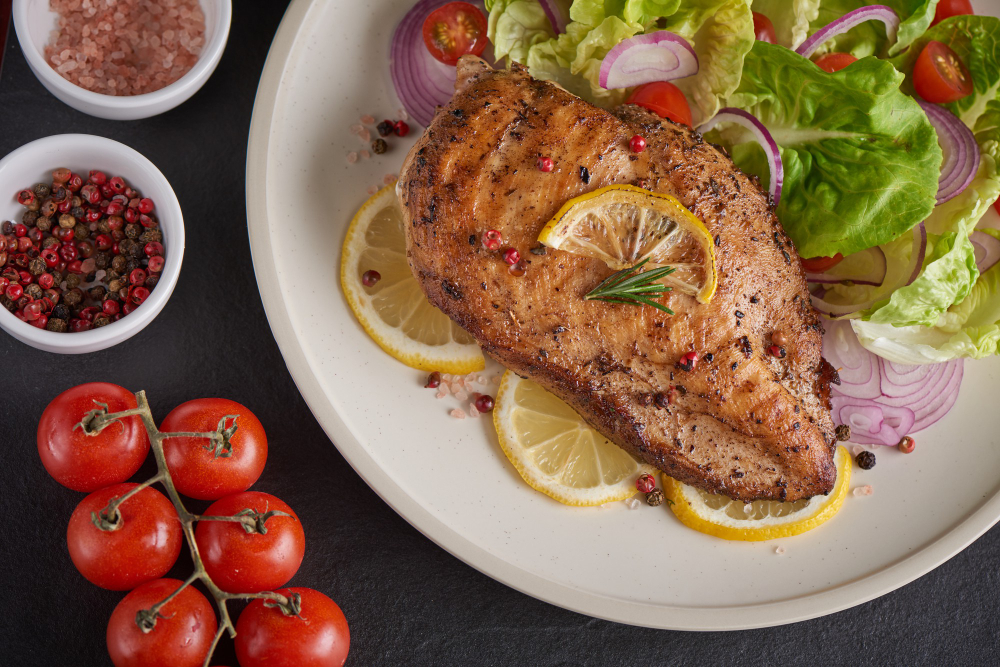
Your favorite chicken dinner isn’t just providing you with nutritious, lean protein. Poultry also provides choline which we’ve pointed out is a brain power building block. It’s also rich in B6 and B12 Vitamins. For aging individuals, chicken is also important for its amino acids that help to build and maintain muscle mass.
1+ Meals a Week of Fish
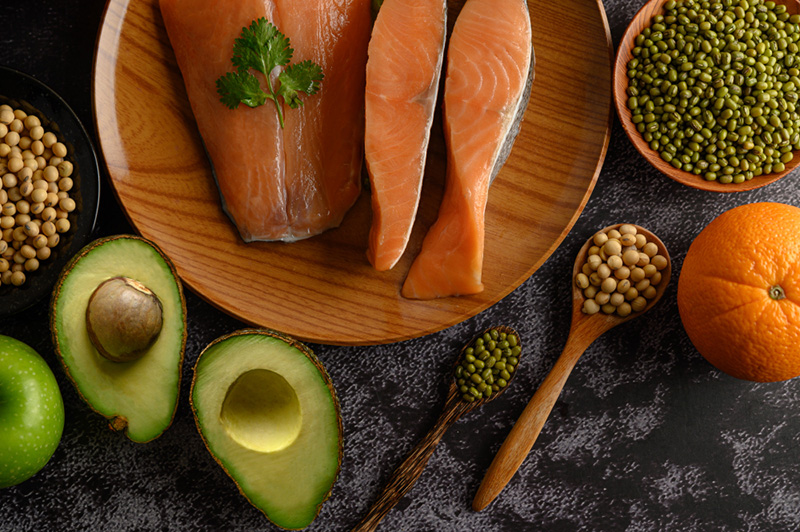
Fish is another well-established brain food and one of the best sources of DHA Omega-3 fatty acids. These fatty acids support brain health, healthy cholesterol levels, supple skin, and strong joints.
Best in Nature Omega-3 provides nearly twice the Omega-3 content of the leading competitor.
Choose Healthy Fats
The MIND diet emphasizes using mostly olive oil when you need to use oil. Avocado oil is another good choice.
The key to getting the benefits of these oils is not to use them at very high temperatures.
Foods to Avoid on the MIND Diet
The creators of the MIND diet advise people to avoid foods that are higher in saturated fat and trans fat. When you do consume them, try to limit yourself to:
- Fewer than 5 servings a week of pastries and sweets
- Fewer than 4 servings a week of red meat (including beef, pork, lamb, and products made from these meats)
- Less than one serving a week of cheese and fried foods
- Less than 1 tablespoon a day of butter or margarine
Brain-Boosting Supplements for Focus and Memory from Best in Nature
VitaBrain is formulated from a host of herbal ingredients with a history of brain boosting benefits including Ginkgo Biloba and Huperzia Serrata.*
L-Theanine acts on GABA, and serotonin to promote relaxation, sleep and better overall mental wellness.*
Flax Oil is a plant-based source of Omega-3 that help to protect the brain against aging.*
Omega-3 Salmon King is an even more potent source of Omega-3 with high-purity, ultra filtered fish oil and no aftertaste.*
Bottom Line
The MIND diet combines the Mediterranean and DASH diets to focus on foods that are associated with brain health. The main nutrients to look for among them are choline, B-Vitamins and Omega-3.
*These statements have not been evaluated by the Food and Drug Administration. Products are not intended to diagnose, treat, cure or prevent disease.






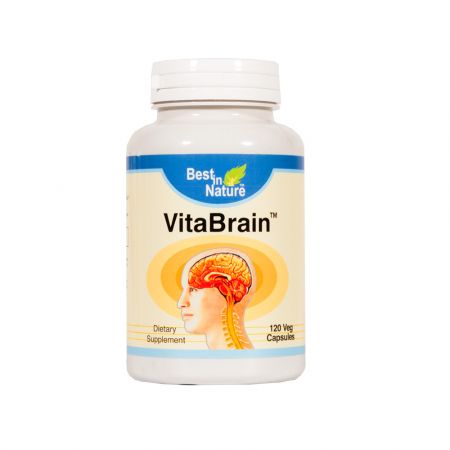
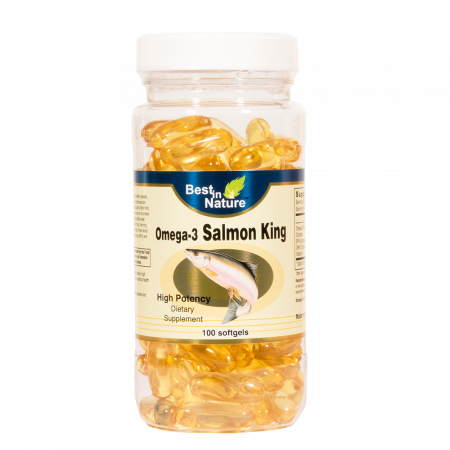
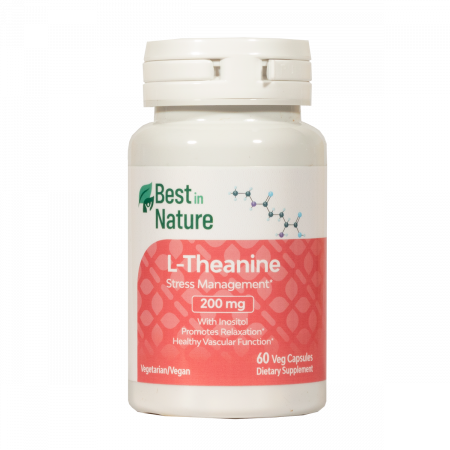
Validate your login
Sign In
Create New Account